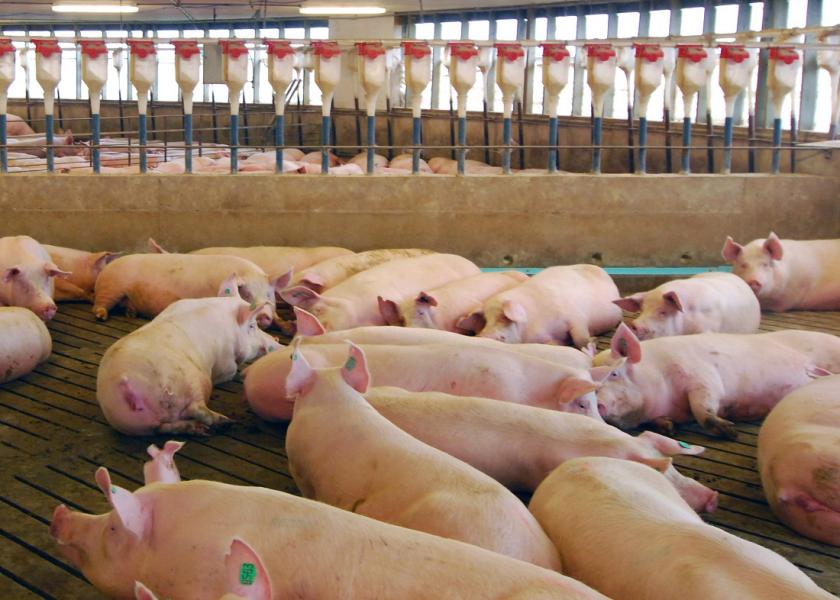Pork Industry, Don’t Underestimate Proposition 12

By Michael Formica, NPPC Assistant Vice President, Domestic Affairs & Counsel
The California ballot initiative, which passed Nov. 6, 2018, will significantly increase the price of pork for consumers both in California and nationwide. Set to go into effect on Jan. 1, 2022, it applies to any pork sold in California, whether raised there or outside of the state’s borders. It bans the sale of products from animals that were not raised in accordance with the production method it prescribes.
For pigs, the proposition applies to the meat from breeding sows, which are “confined in a cruel manner” or their offspring. It defines “confined in a cruel manner” as less than 24 square feet of space per animal and mandates that animals must be able to lie down, stand up and turn around and fully extend their limbs without touching another animal (of course, pigs’ natural expressive behavior as a pack animal would be to touch other pigs).
Violations of Proposition 12 are a misdemeanor punishable by fines up to $1,000 and 180 days in jail (or both). In addition, a violation also constitutes an unfair competition business violation under California law.
NPPC strongly objects to Proposition 12 for many reasons. First, it serves as a tremendous barrier – one that is currently beyond the reach of most pork producers – to the California marketplace, which is approximately 15% of the overall domestic pork market.
Further, it will significantly reduce the supply of pork for Californians, driving up prices for consumers. California’s diverse population includes a large Hispanic community (35% of the state) and an Asian community (15% of the state), both of which’s longstanding cultural protein of choice is pork.
Additionally, California’s low-income households that rely on low-cost sources of protein will be disproportionately affected by such a sales ban. That’s what happened in the¬ state after the legislature outlawed the sale of eggs from hens housed in so-called battery cages, regardless of whether the hens were raised in California or other states beginning in 2015. In that case, the ban resulted in a 49-cent-per dozen increase in California egg prices—13.5 times higher than the inflation rate for all food.
No doubt, Proposition 12 will dramatically reduce the supply of wholesome, affordable and nutritious pork available to the state, increasing the costs Californians have to pay for pork. California, the state with the nation’s highest poverty rate, is now set to impose these staggering costs on its most at-risk citizens, including the over 4 million Californians who receive assistance purchasing food and the shockingly high 18.1% of California children who live in poverty.
Second, such a sales ban could force hog farmers who want to sell pork in the populous California market to switch to alternative housing systems – at significant cost to them and consumers everywhere. Since current group housing operations aren’t even compliant with Proposition 12, the impact will be tremendous. Ultimately, Proposition 12 undermines the overall global competitiveness of the U.S. pork industry and reverses the decades-long efforts of the industry to reduce its carbon footprint by lowering the efficiency of farms well over 30%.
Brian Buhr, professor in applied economics at the University of Minnesota, in a 2010 study estimated a cost of between $1.9 billion and more than $3.2 billion for the pork industry to move away from individual pens for sows. That would raise the price of pork at a cost to consumers of an estimated $5 billion, according to Buhr. The actual costs of California’s proposal could be even higher. This in turn would start a cycle of consumers demanding less pork followed by higher prices.
Third, Proposition 12 revolves around a set of arbitrary standards that lack any scientific, technical or agricultural basis. It provides no actual improvement to the welfare of pigs and will actually undermine the welfare of sows. These standards were drafted by activists whose goal is the elimination of pork (and ultimately all animal protein) from U.S. diets and who lack any expertise or experience raising pigs.
Finally, California’s ban on the sale of out-of-state pork is a restraint of interstate commerce, and that’s a violation of the U.S. Constitution, which grants Congress absolute power over trade among the states. (The U.S. Court of Appeals for the Ninth Circuit in Sacramento dismissed a 2014 case brought by six state attorneys general against the egg sales ban, but it did so not on the merits of the case, but on procedural grounds).
NPPC recently submitted comments on Proposition 12 to the California Department of Food and Agriculture, outlining these and other concerns and asked the state to delay the requirement for at least two years. NPPC also invited the state’s regulators to visit with farmers and learn firsthand about pork production.
Washington Watch columnist Michael Formica serves as Assistant Vice President, Domestic Policy & Counsel for the National Pork Producers Council. He works with federal agencies, the White House and congressional lawmakers on regulatory and legal issues impacting pork and livestock producers.
More from Farm Journal's PORK:
Proposition 12 Reaches Beyond Livestock Industry Into Your Pocketbook
California Passes Animal Welfare Law
Pork Leadership Institute Offers Broad Look At Top Policy Issues







